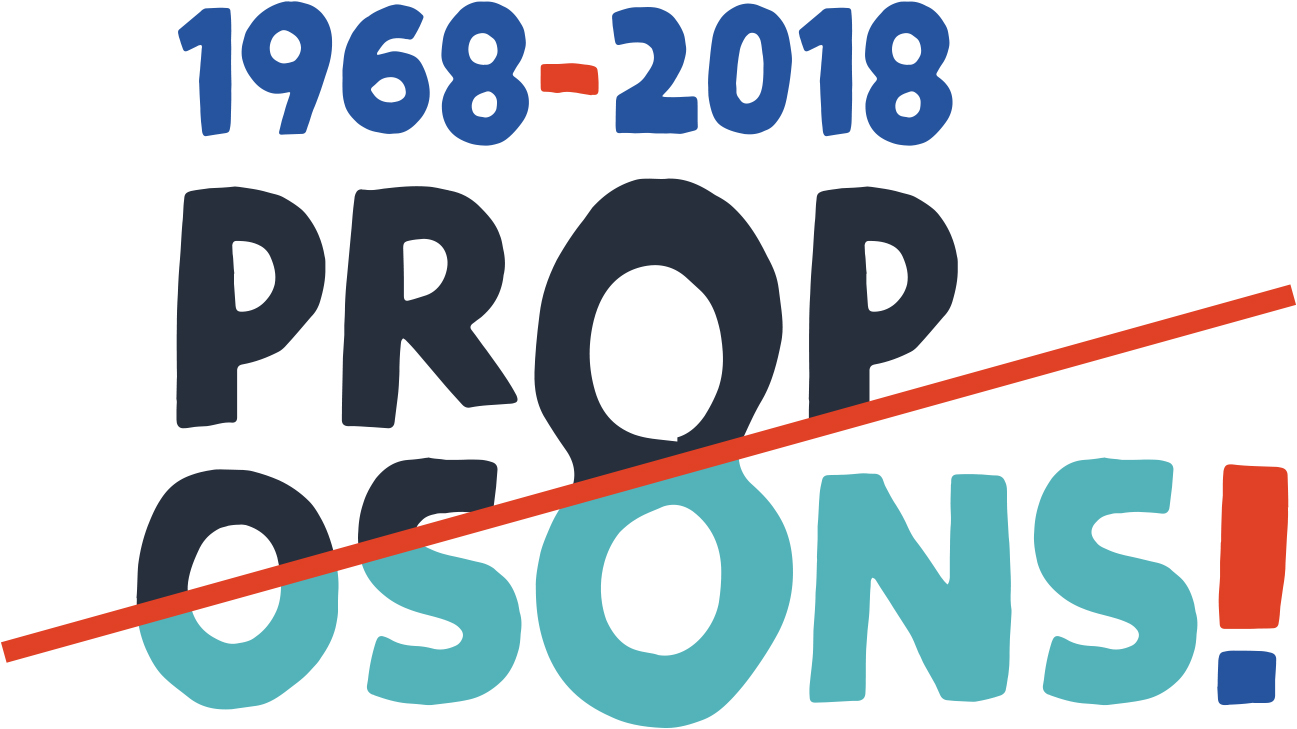Texte de cadrage
FR/ENG/Télécharger le texte de cadrage
Revolution(s)
This theme seemed the obvious choice for the 58th Congress of the SAES at Nanterre University in 2018, exactly half a century after the events of the spring of 1968 in which the Nanterre campus played such a leading role. From its earliest uses in the English language onwards, the word Revolution has seemed to have an almost Freudian capacity to render opposites: order and disorder, revolution as rupture, a new departure, the promise of a new world, or a return to the beginning. Is the notion of revolution as a catalyst for action still relevant today? Does it still carry conviction as a plan, hope, or representation of an age? Is it still pertinent to think of it as a framework to make history or to give it meaning?
Over and above the diversity of its forms in the English-speaking worlds past and present, the theme of revolution is an invitation to an epistemological reflection on its manifestations in contexts specific to contemporary English language studies. The infinite availability of online resources, combined with vast technological changes (ebooks, digital humanities, collaborative and connected modes of expression, etc.) have already revolutionized our working habits and practices. In what areas are these revolutions in knowledge and learning having an impact? What are the major thematic, theoretical and methodological paradigm shifts in the various areas of English studies today?
In the fields of history and civilization, the revolutionary character of events such as the civil wars of the 17th century (“The Puritan Revolution”, “The Glorious Revolution”) can be reassessed by reviewing the history of their interpretations by historians who use the term revolution with more discretion than before. It is also possible to consider events which are not normally termed “revolutions”, for example “The Wars of the Roses”, the 1534 Schism which initiated a religious, cultural and political revolution, or the Jacobite upheavals, sometimes experienced as aborted revolutions in the 18th century. Can the wars of independence at the close of the British Empire be called revolutions? Finally, how should we consider the great transformations brought about by the “scientific revolution” or the “Industrial Revolution”, or the ideological watersheds such as the post-WWII Welfare state settlement, the “Thatcherite revolution” and Blairism, or the constitutional changes induced by devolution and Brexit?
Does a literary work simply chronicle and accompany revolutions or can it change the world? Was each formal revolution which deconstructed one set of codes and ushered in a new phase of literary history just the reflection of a change in the way writers saw the world or did it create new ways of representing this change? What makes a piece of writing revolutionary? Is it its immediate impact? Is it because it marks a milestone, as Joyce’s Ulysses did, or because it leaves a deep, lasting influence on English-speaking literature as a whole, as Shakespeare and the romantic poets have? Literature can be revolutionary in form, but it can also carry a political message, as is the case with Ralph Ellison’s Invisible Man, published in 1952, which can be read as a ground-breaking moment in the civil rights movement. Conversely, some writers take counter-revolutionary stances, like George Orwell and Aldous Huxley, who denounced the excesses of revolutions. By classifying works into genres and preserving them in the literary canon, is literature not positioning itself as reactionary? Conceptual revolutions and the way in which they take place across time periods, cross-fertilizing approaches, and the permeability of genres can also be considered.
Translation, from Humboldt to Homi Bhabha and Judith Butler, originally seen as a key to nation-building in the romantic age or a return of those forgotten in cultural translation, has acted as the torch bearer of the cultural and technical revolutions which have shaped our fields of study. Sometimes an instrument of propaganda, it is also a tool for resistance and innovation, and a preferred means to spread new ideas. The translator is a rebel, an enemy of patriotism (Derrida), the person who is in closest contact with a system and can sabotage it from within to enable the advent of something new. At a time when the area of “translation studies” is completely revolutionizing the university landscape in English-speaking countries and our own disciplinary fields, many new questions emerge concerning the links between translation and questions of identity, political thought and the diffusion of knowledge, and the evolution of translation as a pedagogical tool.
The creation of an autonomous linguistics department at Nanterre University in 1968 reflected the revolutionary situation of speech and language study as a discipline, clearly signalling that linguistics was opening up to other fields in the social sciences (such as sociolinguistics or psycholinguistics). Reflections on the construction of meaning in the English language today are inextricably linked to issues related to working with corpora which match the linguistic realities of English-speaking communities as closely as possible. What new methods of analysis have emerged from the study of corpora? The age of global English has opened up a whole new set of challenges on the best way to tackle normative forms, variation and linguistic evolutions. Indeed, what can be said about the subversions of the English language at a time of tension between hegemony and dialectal fragmentation?
The didactics of teaching English as a second language raises questions about the impact of the technological and digital revolution on our practices and the necessary changes in English teaching and learning for students who specialize in other disciplines, while new tools are at our disposal for the collection and analysis of data (large corpora, statistics, standardization in the presentation of results…). Discoveries in neuroscience can foster new methods and findings. What institutional “revolution(s)” are offered by the national curriculum for language teaching in terms of pedagogical freedom and innovations, when traditional modes of transmission no longer work for increasingly larger cohorts of students? What is the role of the learners, who must not only receive but produce, speak, act and interact in situations requiring communication or action which reflect the nature of social exchanges? How can the University revolutionize its approach to assisting both students and professionals throughout their careers?
In the domain of television studies, heralding one “new golden age” after another seems to reflect some sort of spiral-shaped evolution. The study of the subversive rewritings of images of the past (television) merits further exploration. The recent fascination for cult series of the 1990s and 2000s — such as Twin Peaks (1990-91), The X-Files (1993-2003) and Gilmore Girls (2000-06) —, which have announced their “return” with new, updated versions, foregrounds the tensions between conformity and subversion visible in current TV shows and their take on the contemporary (English-speaking) world. The 2011 HBO eponymous remake of the 1945 cult film noir Mildred Pierce by Michael Curtiz is another fascinating example of the whole trend. We will also examine how cinema, beyond creating works that challenge the canon and spawn new hybrid forms and genres, literally remakes some of its early achievements, sometimes releasing even better works than the originals. Philip Kaufman’s 1978 Invasion of the Body Snatchers, a remake of the 1956 film of the same name by Don Siegel, and the 2010 remake by the Coen brothers of the 1969 version of True Grit by Henry Hathaway, a classic in its own right, are perfect examples of such epiphanic revolutions on screen.



